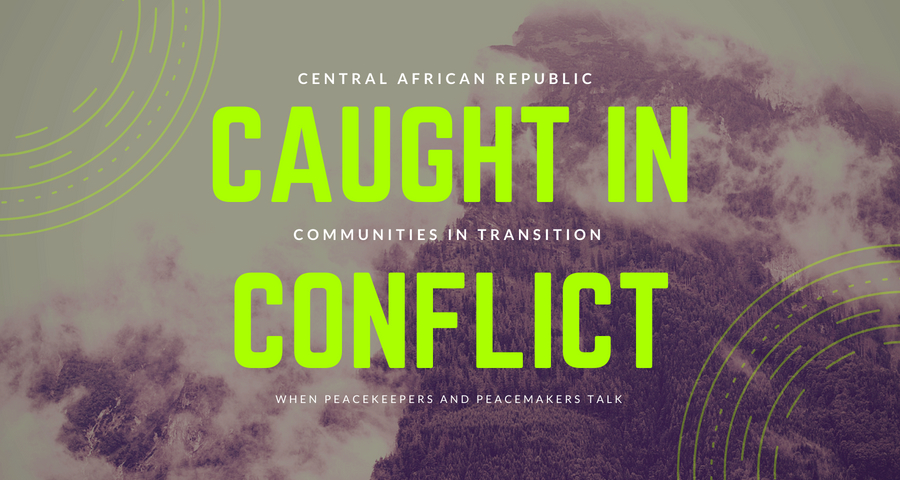Women Empowerment: A Long Way to Go
Women Empowerment and Gender Equality is still a distant dream for women in many parts of the world.

"We asked for it but didn't know it would come this way" Pk5 resident.
When MINUSCA came to disarm armed groups in the Muslim neighborhood of Pk5, they came at the request of business owners in the community. Shopkeepers are the first victims of racketeering and illegal taxation.
These conversations between the victims of local gangs and the UN gave way to operation Soukoula on the night of Saturday April 7th, 2018, unbeknownst to the rest of the Pk5 community members. Soukoula means "to clean" in Sango, the local language in the Central African Republic (CAR).
The sudden arrival of Peacekeepers accompanied by CAR government security forces, struck fear in the population. Perceived by the residents as a general disarmament of all Muslims in Pk5, it woke up traumas of Anti-Balaka attacks against their community from back in December 2013, particularly when the military began sweeping through the neighborhood, arresting folks just to verify people's identity. April 10th, an intervention conducted by the Rwandan contingent was further interpreted by Muslims as a targeted assault on their community.
Heavy fire led to mayhem, civilian casualties, and local displacements. Worse, armed leaders and self-defense groups left unscathed, their position bolstered and the repetition of operations without apparent results deepened the mistrust towards the UN and the government.
When peacekeepers and peacemakers talk, two worlds come together with varying expectation, often differing agendas and limited trust.
Representation
Community interlocutors that seek to engage with track-I actors can arise from a number of different sources. Many are seen as quite legitimate within their own circles. However, in the case of CAR, in spite of being forced to live together due to the circumstance of war, the Muslim community in Bangui is very divided. Without a keen understanding of the intra-community fragmentation and competing allegiances, even a well-meaning interlocutor often only speaks for a part of the community. Intra-group dynamics can be so dysfunctional that in spite of often similar goals, coordination between segments is obstructed by conflicting power dynamics. To avoid an inhospitable community response, one must select representation that reflect the diversity of views and affiliations expressed inside a community.
Communication
A dialogue acts as a pivot point between two groups. Those that meet on behalf of the UN report back to their hierarchy and the community’s representatives are assumed to do the same. However, while institution have reporting mechanisms, communities do not. The assumption that representatives report back to their members is not always true, even less likely is that they speak for minority voices within the community. Similarly, UN dialogue participants may not be decision-makers and only have limited control to stop a military operation from happening. Understanding the communication chain feeding into a dialogue process can help clarify the expected outcome. Using a trauma-sensitive lens and broadening the dialogue design to include intra-group feedback loops can reassure and inform civilians about what is about to happen.
Trust-building measures
Trust is built on predictability and in conflict countries little of that exists. Over and over again, people have felt betrayed and this lack of trust impacts all interactions. In addition, culture, personalities and history affects how people come together. Small, incremental and consistent actions of good faith that demonstrate that one is not only working for one's own interests but in the interest of the other can start the process of rebuilding relationships. Managing the expectations of parties about realpolitik also helps.
In complex conflict contexts, using impartial third-parties to help design and facilitate conversations between peacekeepers and local peacemakers can bring to light process gaps and help resolve misunderstandings.
